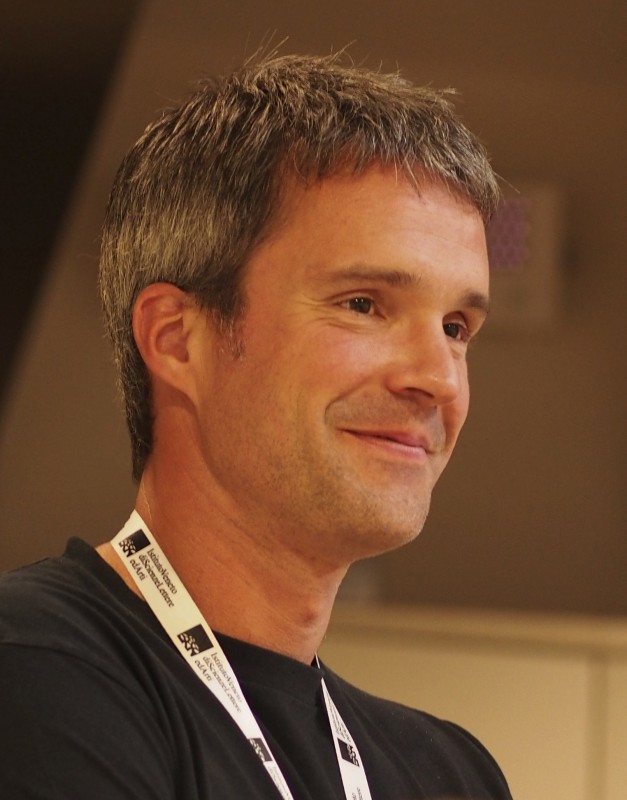KLI Colloquia are invited research talks of about an hour followed by 30 min discussion. The talks are held in English, open to the public, and offered in hybrid format.
Join via Zoom:
https://us02web.zoom.us/j/5881861923?omn=85945744831
Meeting ID: 588 186 1923
Spring-Summer 2026 KLI Colloquium Series
12 March 2026 (Thurs) 3-4:30 PM CET
What Is Biological Modality, and What Has It Got to Do With Psychology?
Carrie Figdor (University of Iowa)
26 March 2026 (Thurs) 3-4:30 PM CET
The Science of an Evolutionary Transition in Humans
Tim Waring (University of Maine)
9 April 2026 (Thurs) 3-4:30 PM CET
Hierarchies and Power in Primatology and Their Populist Appropriation
Rebekka Hufendiek (Ulm University)
16 April 2026 (Thurs) 3-4:30 PM CET
A Metaphysics for Dialectical Biology
Denis Walsh (University of Toronto)
30 April 2026 (Thurs) 3-4:30 PM CET
What's in a Trait? Reconceptualizing Neurodevelopmental Timing by Seizing Insights From Philosophy
Isabella Sarto-Jackson (KLI)
7 May 2026 (Thurs) 3-4:30 PM CET
The Evolutionary Trajectory of Human Hippocampal-Cortical Interactions
Daniel Reznik (Max Planck Society)
21 May 2026 (Thurs) 3-4:30 PM CET
Why Directionality Emerged in Multicellular Differentiation
Somya Mani (KLI)
28 May 2026 (Thurs) 3-4:30 PM CET
The Interplay of Tissue Mechanics and Gene Regulatory Networks in the Evolution of Morphogenesis
James DiFrisco (Francis Crick Institute)
11 June 2026 (Thurs) 3-4:30 PM CET
Brave Genomes: Genome Plasticity in the Face of Environmental Challenge
Silvia Bulgheresi (University of Vienna)
25 June 2026 (Thurs) 3-4:30 PM CET
Anne LeMaitre (KLI)
KLI Colloquia 2014 – 2026
Event Details

Topic description:
Modern academia is a large-scale industrial operation governed by a business model directly adopted from the economics of the free market. It centres on the notions of efficiency, productivity, and accountability. These shall be maximised through competition and control. Success is measured by the numbers---numbers of grants, papers, citations, patents, and applications. Based on these quantitative indicators, we can proudly say that science is more productive than ever before. And yet, I think that something is terribly wrong. In our rush to publish, we produce an unprecedented avalanche of inconsequential information while many important insights are overlooked, especially those that cannot be packaged as easily digestible sound bites. What cannot be measured goes unnoticed. The cult of productivity imposes an excessively narrow focus on science, which becomes increasingly driven by technology and short-lived academic or political fashions. Little appreciation remains that exploration can be an enriching experience, not only for the explorer, but for society in general. Our vision of the ideal academic is a highly efficient robot, unimpeded by emotions and other unnecessary distractions. Someone who tackles the solvable. Someone with a business plan and a chart projecting, month by month, the discoveries to be made. It is a very pragmatic vision. But also an impoverished one, since it comes at the expense of academic freedom and diversity. Not only the diversity of ideas, but also the diversity of people who can and should provide intellectual input to the scientific enterprise. Small independent institutes of advanced study, such as the KLI, provide an academic niche where an alternative vision of academia can be kept alive. In this talk, I would like to share my version of this vision, and some personal ideas about future adventures in natural philosophy.
Biographical note:
Johannes Jäger did his undergraduate studies in developmental genetics with Walter Gehring at the University of Basel. Frustration about over-simplistic interpretation of brilliant experiments then drove him to pursue a Master´s degree in holistic science with Brian Goodwin at Schumacher College in Dartington, Devon. During this time, he was first exposed to ideas about process philosophy and the evolution of complex dynamical systems. The desire to root theoretical ideas in empirical evidence eventually nudged him back in the direction of experimental biology. Joining the laboratory of John Reinitz at Stony Brook University, New York, he learned to combine experimental and theoretical aspects of his research interests. During his dissertation project, he worked on quantitative microscopy, image bioinformatics, and network modelling, receiving his PhD degree in genetics in 2005. Subsequently, he moved to the University Museum of Zoology in Cambridge as a postdoctoral research associate, and became an independent group leader at the Centre for Genomic Regulation (CRG) in Barcelona in 2008. His laboratory has been studying the evolution of developmental gene regulatory networks using an inter-disciplinary approach that integrates experimental, computational, and mathematical methodology. In 2014/15 Jäger was a fellow at the Wissenschaftskolleg zu Berlin (Wiko), where he revived his philosophical interests in scientific perspectivism and the processual nature of reality. As the scientific director of the KLI (since Sep 1, 2015), he is now in a unique position to combine his scientific and philosophical pursuits. He hopes to amalgamate the two into a modern-day natural philosophical approach to investigate life, the universe, and everything!


